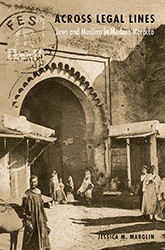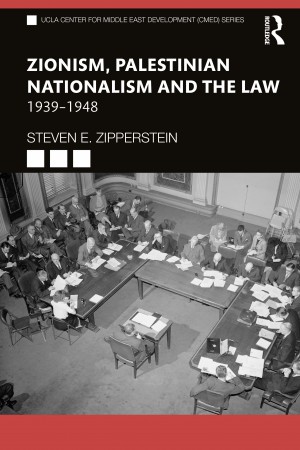Years of Glory tells the story of an unsung Moroccan hero of World War II, attorney Nelly Benatar. Born in 1898, she was raised in a well-to-do family in Tangier’s Sephardic community, moving at age eighteen to Casablanca, where she attended college and earned her baccalaureate. After marrying her childhood sweetheart, she had two children and then completed a law degree by correspondence, becoming Morocco’s first licensed female lawyer at age thirty-five. Although Benatar had worked her way to what could have been a stellar legal career, world events intervened. It was 1933, and fascism was on the rise in Germany. Zionist newspapers and speakers were capturing the attention of Jewish communities, even in remote Morocco. With the Nuremberg laws of 1935, European Jewish emigres started crowding onto ships from Marseilles to North Africa, hoping to get passage to Lisbon and beyond. When France fell to the Nazis in 1940, Morocco also fell under Vichy rule, with internment camps, forced labor camps, and the removal of Jews from professional life.
Using her extensive personal connections, Benatar worked tirelessly behind the scenes to convince key administrators that their lives would be easier if she were handling the refugees. Working with others in the rescue field to provide papers and passage to hopeful refugees, Benatar was effective by keeping a low profile, even as conditions deteriorated. After the success of Operation Torch, the Allied invasion of North Africa in November of 1942, she focused on liberating the forced labor camps in the Moroccan hinterlands, where incarcerated Jews were building railroads to transport coal and essential minerals for the Nazi war effort.
After Victory in Europe Day, the refugee problem increasingly fell to United Nations agencies and large Jewish charities. While the numbers of people fleeing were so huge that Benatar’s one-by-one approach was impractical, she did come to new understandings about the meaning of being “stateless” versus “displaced.” Many had no interest in being reinstated in their birth countries; they identified as Jews, not as Germans or Poles, and Israel looked safer for Jews. As attention shifted to the needs of European refugees, world interest in the Jews of North Africa waned. In post-war Morocco, violence against Jews went unchecked, spurring growing Jewish migration to Israel.
Through the lens of Nelly Benatar’s work, Susan Gilson Miller helps readers experience the war from a North African perspective, refocusing resistance and Holocaust history away from its usual European setting. After all, the movie Casablanca, which Miller references in her introduction, is many readers’ only vision of wartime Morocco. Released just two weeks after Operation Torch, it did present an exciting, romantic refugee story set in Casablanca, while also avoiding seriously ugly scenes of Jews being worked to death digging mines, building dams, and laying railroad tracks in the Sahara. This study of Nelly Benatar makes it clear that Morocco was an integral part of the Vichy/Nazi war machine. The issues Benatar raised about meeting the needs of stateless people, and about the role of Israel as a Jewish homeland, are as important today as they ever were.
Bettina Berch, author of the recent biography, From Hester Street to Hollywood: The Life and Work of Anzia Yezierska, teaches part-time at the Borough of Manhattan Community College.



